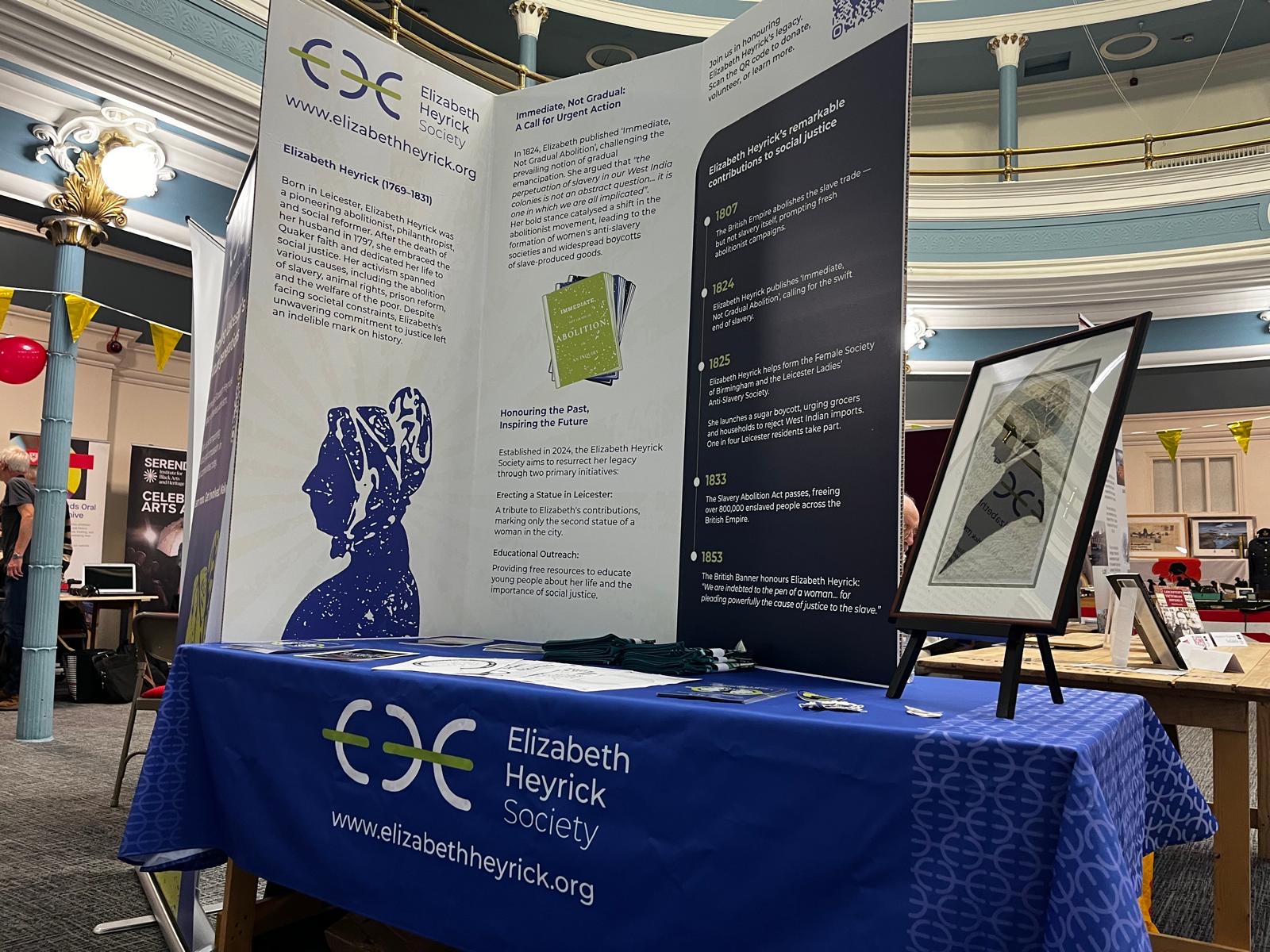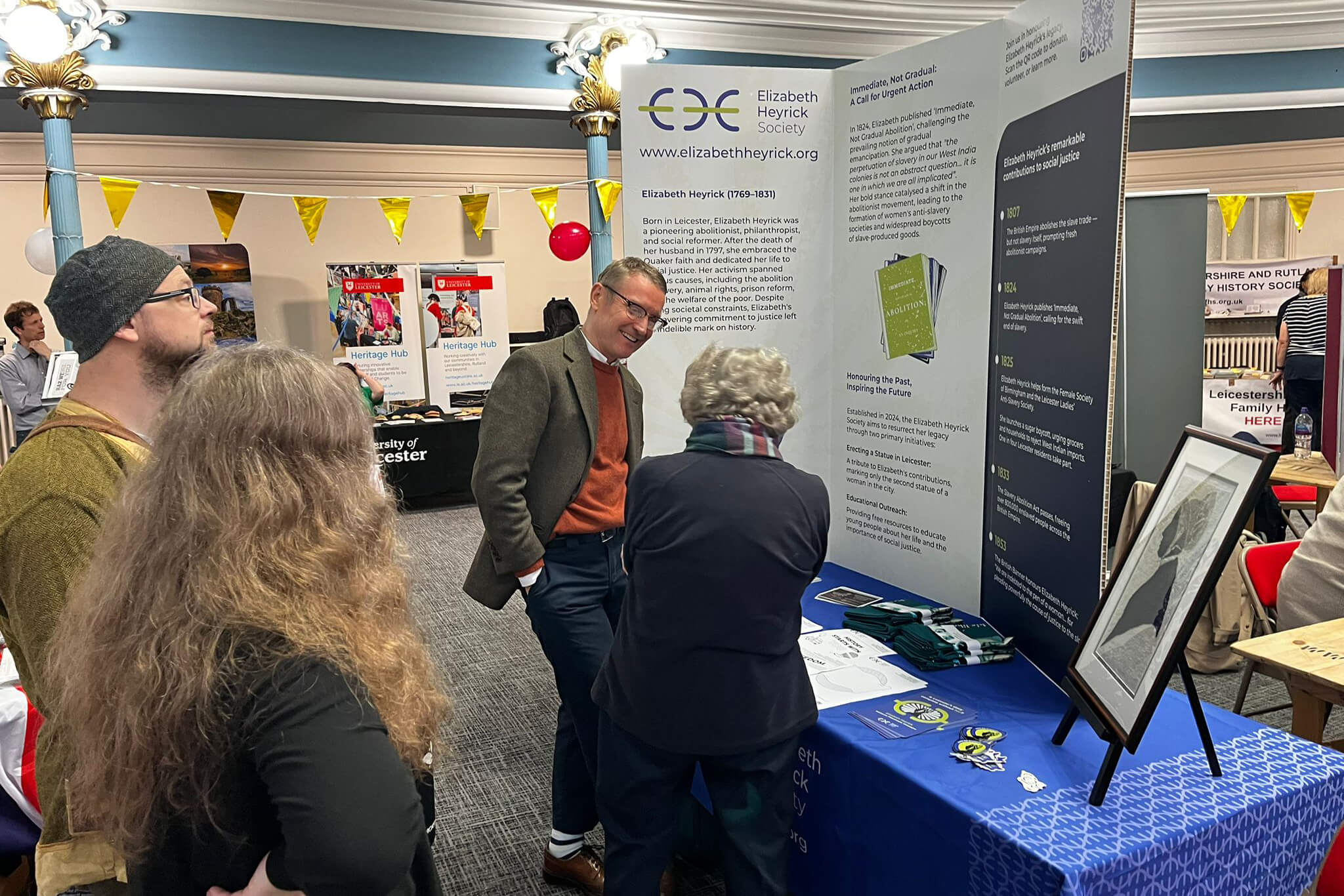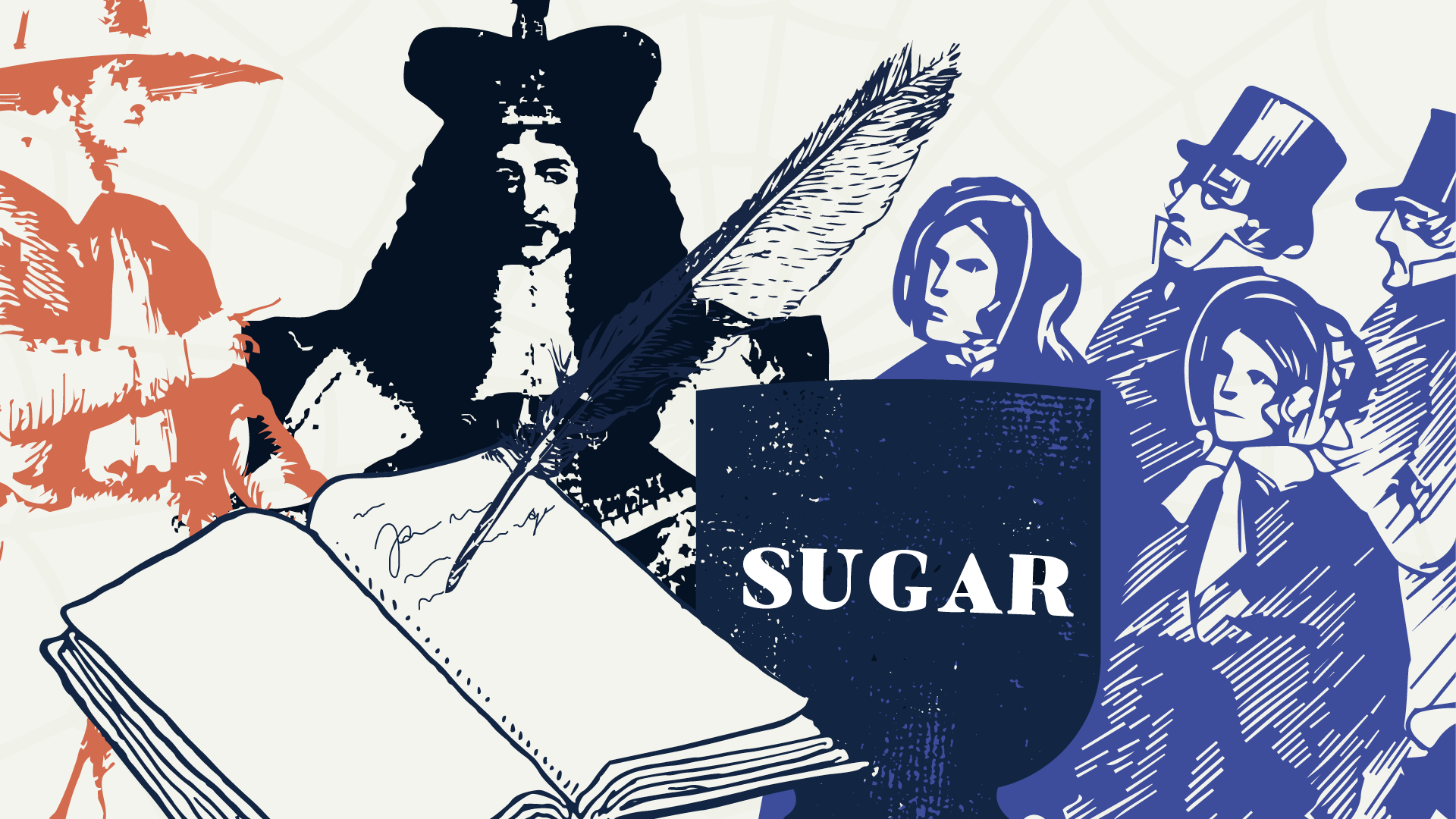Elizabeth Heyrick, a visionary abolitionist in the early 19th century, transformed the fight against slavery by championing immediate abolition over gradual reform.
Among her most impactful strategies was the use of economic boycotts to challenge industries that profited from the exploitation of enslaved people. Her groundbreaking sugar boycott mobilised consumers, particularly women, to reject products tainted by slave labour. This innovative approach to social justice has inspired countless movements since, proving that consumer activism can be a formidable force for change.
Today, Elizabeth Heyrick’s legacy continues to resonate in global campaigns for equality, sustainability, and human rights. This article explores how her pioneering strategies have shaped modern activism, from the civil rights movement to the fight against climate change.
The Origin of the Word "Boycott"
The term "boycott" refers to the act of withdrawing support, participation, or patronage from a person, organisation, or country as a form of protest or coercion. It is a nonviolent strategy used to exert economic, social, or political pressure to achieve change.
The word "boycott" originates from a specific historical event in 19th-century Ireland. In 1880, during the Irish Land War, tenants in County Mayo protested against unfair rents and evictions imposed by their landlord, Captain Charles Cunningham Boycott, an English land agent. Led by the Irish Land League, the tenants refused to work on Boycott’s land, stopped trading with him, and isolated him socially. This collective action was so effective that it left Boycott unable to function in his role. The campaign gained widespread attention, and the term "boycott" was coined to describe this form of organised resistance.
While the term was formally coined in 1880, the practice of collective refusal to engage with oppressive systems predates this event. One of the earliest recorded examples of a boycott occurred in 1830, when free Black communities in the United States organised a boycott of goods produced by enslaved labour. This early use of economic pressure to protest slavery laid the groundwork for future social justice movements.
Elizabeth Heyrick and the Sugar Boycott

Elizabeth Heyrick was a pioneering force in using consumer activism as a tool for social change. In her 1824 pamphlet, Immediate, Not Gradual Abolition, Elizabeth Heyrick rejected incremental approaches to ending slavery, arguing that they only prolonged the suffering of enslaved people. Recognising the economic power of ordinary consumers, particularly women who managed household budgets, Elizabeth Heyrick called for a boycott of sugar produced by enslaved labour in the Caribbean.
The sugar boycott was not merely a moral stance; it was a strategic economic move designed to undermine the profitability of slavery. Elizabeth Heyrick urged British consumers to stop purchasing sugar from plantations in Jamaica, Barbados, and other British colonies in the West Indies. Instead, Elizabeth Heyrick advocated for sugar produced in Britain’s East Indian colonies, such as Bengal and Malaya, where workers, though poor, were not enslaved. By redirecting consumer demand, Elizabeth Heyrick aimed to strike a blow at the heart of the West Indian plantation system, which relied heavily on British markets.
Elizabeth Heyrick’s activism was revolutionary in its focus on individual actions and the pivotal role of women in driving political change. Elizabeth Heyrick mobilised women’s groups across Britain, encouraging them to take up the boycott and engage in public activism, a bold move at a time when women’s voices were often marginalised. Her campaign gained momentum, raising awareness about the horrors of slavery and pressuring businesses to reconsider their ties to the slave trade.
Though Elizabeth Heyrick passed away in 1831, her boycott movement played a crucial role in shifting public opinion. It helped accelerate the push for immediate emancipation and directly influenced the passage of the Slavery Abolition Act in 1833, which abolished slavery in the British West Indies. Elizabeth Heyrick’s emphasis on grassroots, consumer-led activism laid the foundation for future social justice movements, cementing her legacy as a visionary in both abolitionism and women’s political empowerment.
Modern Boycotts: The Legacy of Elizabeth Heyrick’s Strategy
Elizabeth Heyrick’s belief in consumer responsibility and nonviolent resistance through boycotts has left an indelible mark on social justice movements worldwide. Over the past century, her methods have been replicated in numerous campaigns, demonstrating that boycotts remain a powerful tool for achieving change.
1. Civil Rights Movement: Montgomery Bus Boycott (1955–1956)

One of the most iconic examples of modern boycotts is the Montgomery Bus Boycott, a pivotal event in the American civil rights movement. Sparked by Rosa Parks’ arrest in 1955, African American citizens in Montgomery, Alabama, refused to use the city’s segregated bus system. The boycott lasted over a year, dealing a severe economic blow to bus companies and ultimately leading to the desegregation of public transit. This nonviolent action echoed Elizabeth Heyrick’s belief that economic pressure could drive profound political change.
2. Anti-Apartheid Movement: Boycott of South African Goods (1959–1994)

In the global fight against South African apartheid, boycotts played a critical role. Activists worldwide urged consumers to avoid South African products and divest from companies operating in the country. This economic pressure, combined with international sanctions, contributed to the dismantling of apartheid in the early 1990s. Like Elizabeth Heyrick’s sugar boycott, this campaign demonstrated the power of collective consumer action to challenge systemic injustice.
3. Environmental Campaigns: Boycott of Fossil Fuel Companies

Elizabeth Heyrick’s legacy also lives on in the modern climate movement. The fossil fuel divestment campaign, led by organisations like 350.org, encourages individuals, universities, and institutions to withdraw financial support from companies involved in fossil fuel extraction. By targeting the economic power of these corporations, activists aim to drive stronger climate policies and greater corporate accountability, mirroring Elizabeth Heyrick’s strategic use of economic pressure.
4. Labour Rights: Boycotts of Fast Fashion Brands

In the fight for workers’ rights, boycotts of fast fashion brands have gained traction. Companies like H&M and Zara have faced criticism for exploiting low-wage labour in developing countries, where poor working conditions and environmental harm are rampant. Activists, supported by organisations like Fashion Revolution, urge consumers to boycott these brands, demanding greater transparency and ethical practices in supply chains. This movement reflects Elizabeth Heyrick’s emphasis on the moral responsibility of consumers to reject exploitative systems.
5. Black Lives Matter: Boycotts for Racial Justice

The Black Lives Matter (BLM) movement has adopted boycotts as a tool to combat systemic racism. Activists have called for boycotts of companies that fail to address racial inequality or support policies perpetuating injustice. In 2020, following the killing of George Floyd, BLM activists targeted corporations linked to racist practices, pressuring them to take meaningful action. This approach aligns with Elizabeth Heyrick’s vision of consumer-driven change.
The Enduring Power of Boycotts
Elizabeth Heyrick’s legacy as a pioneer of economic activism continues to inspire modern social justice movements. Her belief in the moral responsibility of consumers to combat injustice through their spending habits has been replicated in campaigns for racial equality, environmental sustainability, workers’ rights, and human rights across the globe.
Elizabeth Heyrick’s sugar boycott was more than a bold tactic for abolition; it was a testament to the power of collective consumer action to drive systemic change. Today, her strategies remain a vital tool for activists challenging powerful systems of oppression and injustice. In the spirit of Elizabeth Heyrick, boycotts' power is an essential force in the ongoing struggle for a fairer and more just society.
At the Elizabeth Heyrick Society, we honour her legacy by advocating for ethical consumerism and grassroots activism. Together, we can harness the power of our choices to create a better world for all.
Feeling inspired? Find out how you can contribute today and support our campaign to build a lasting memorial to honour Elizabeth Heyrick in Leicester. Join us in celebrating her extraordinary legacy and ensuring her story continues to inspire future generations.





